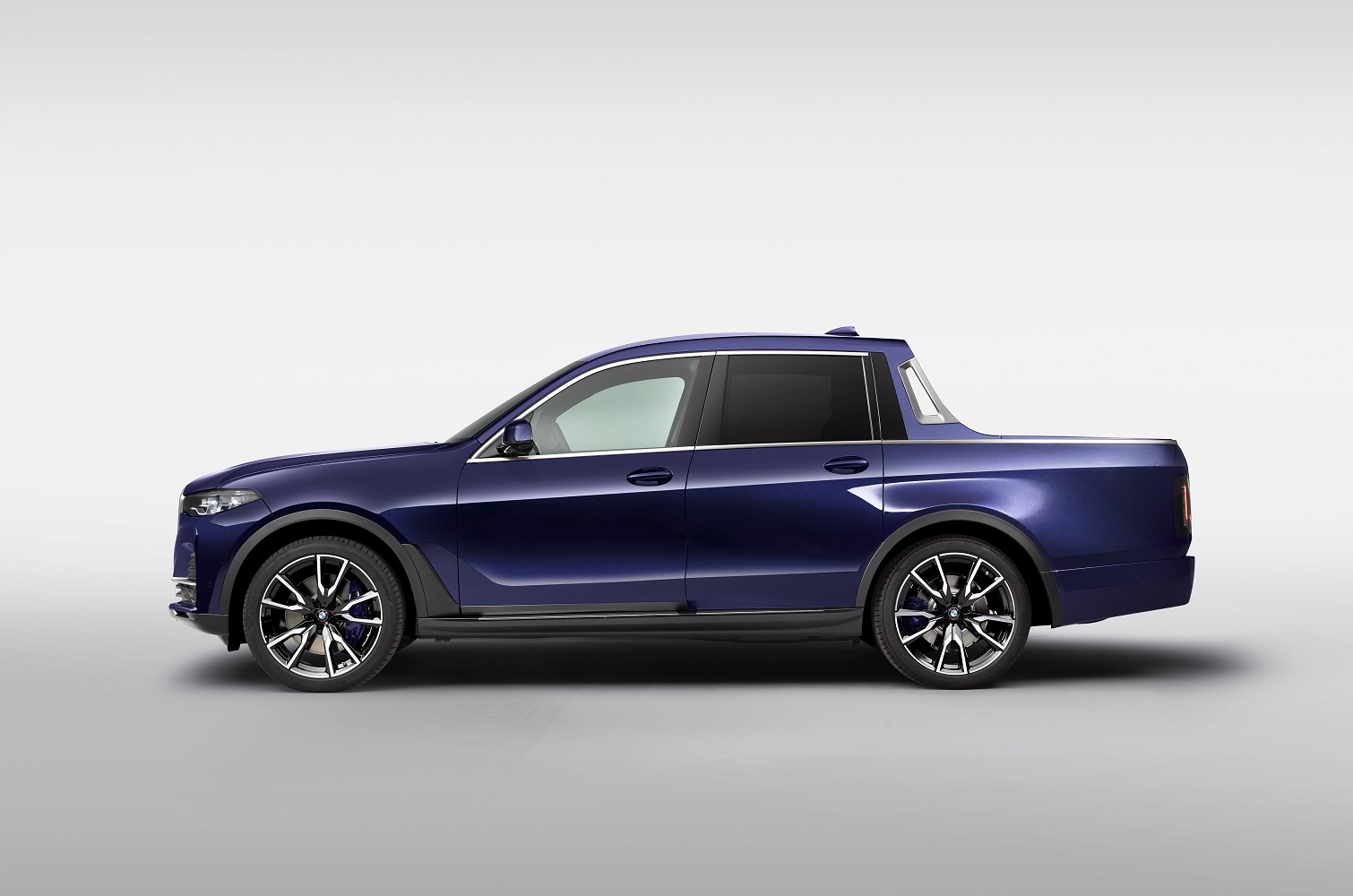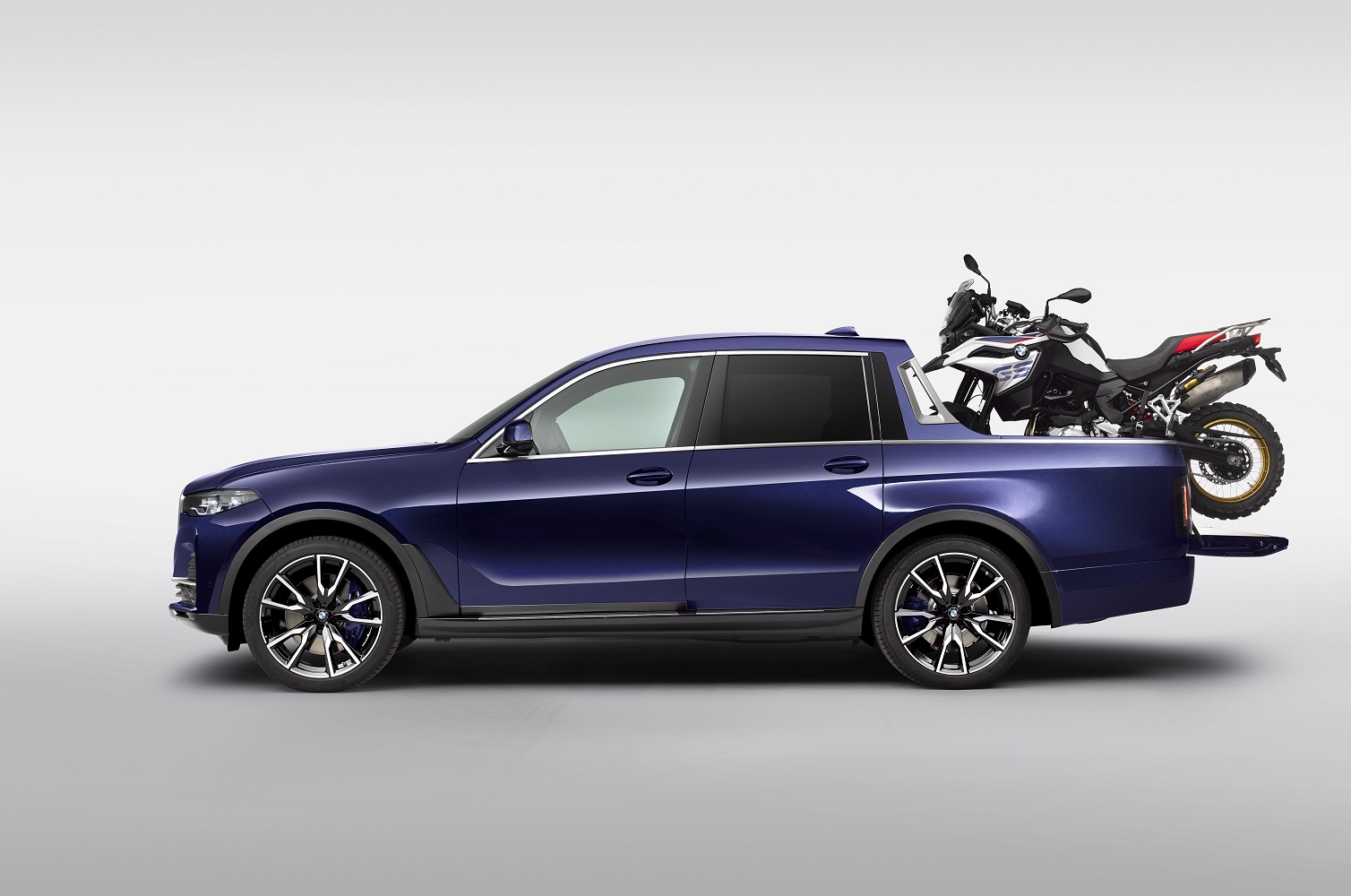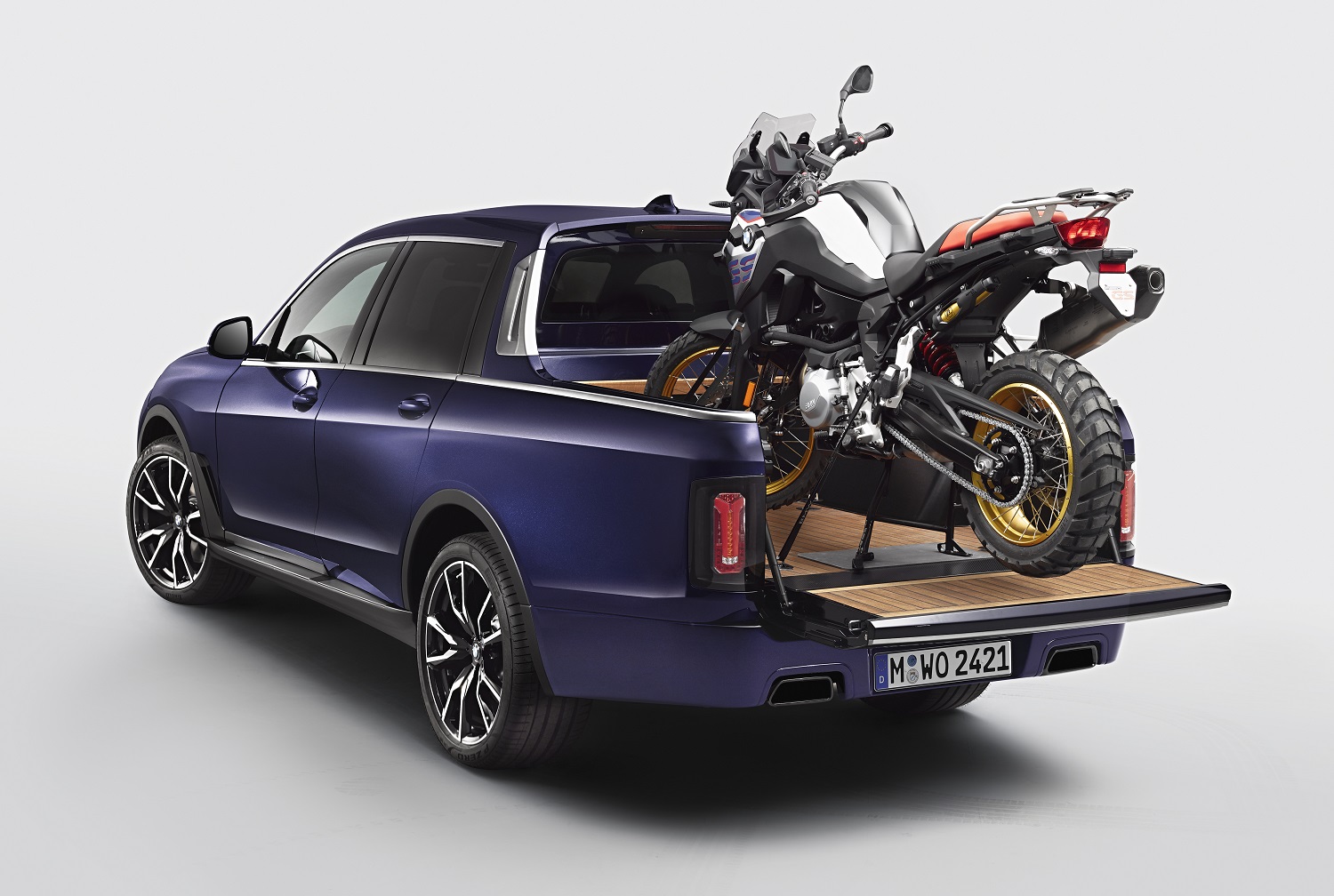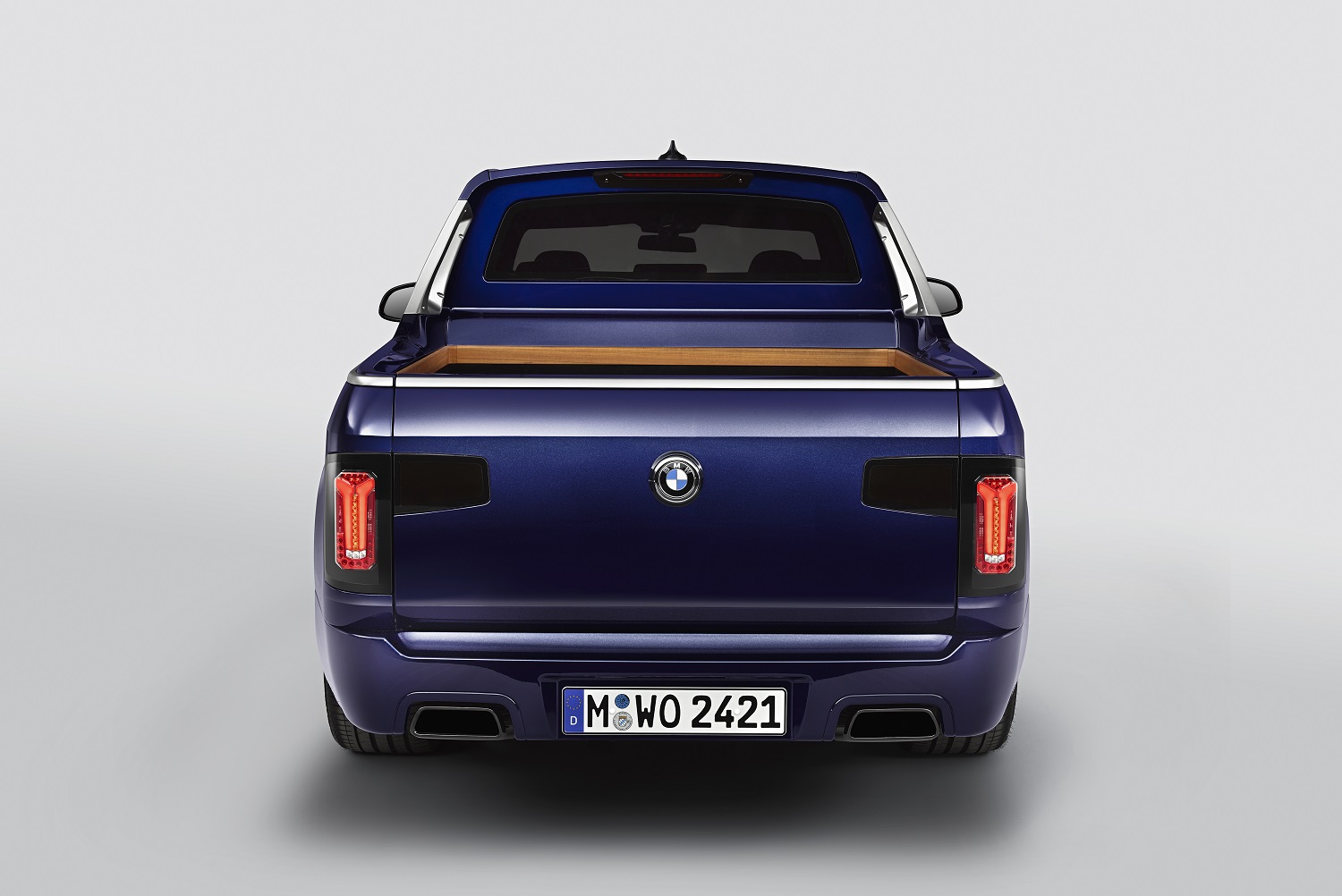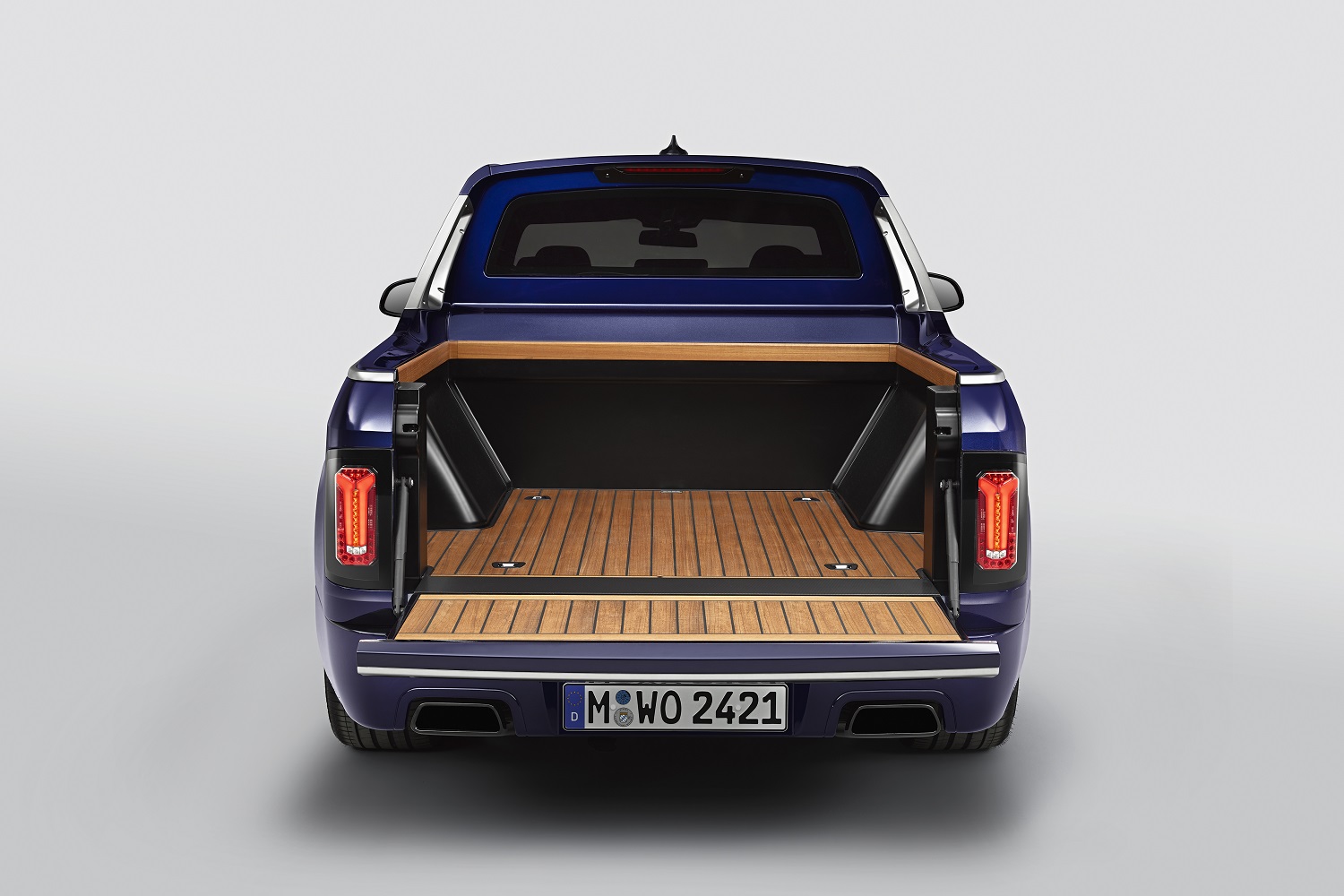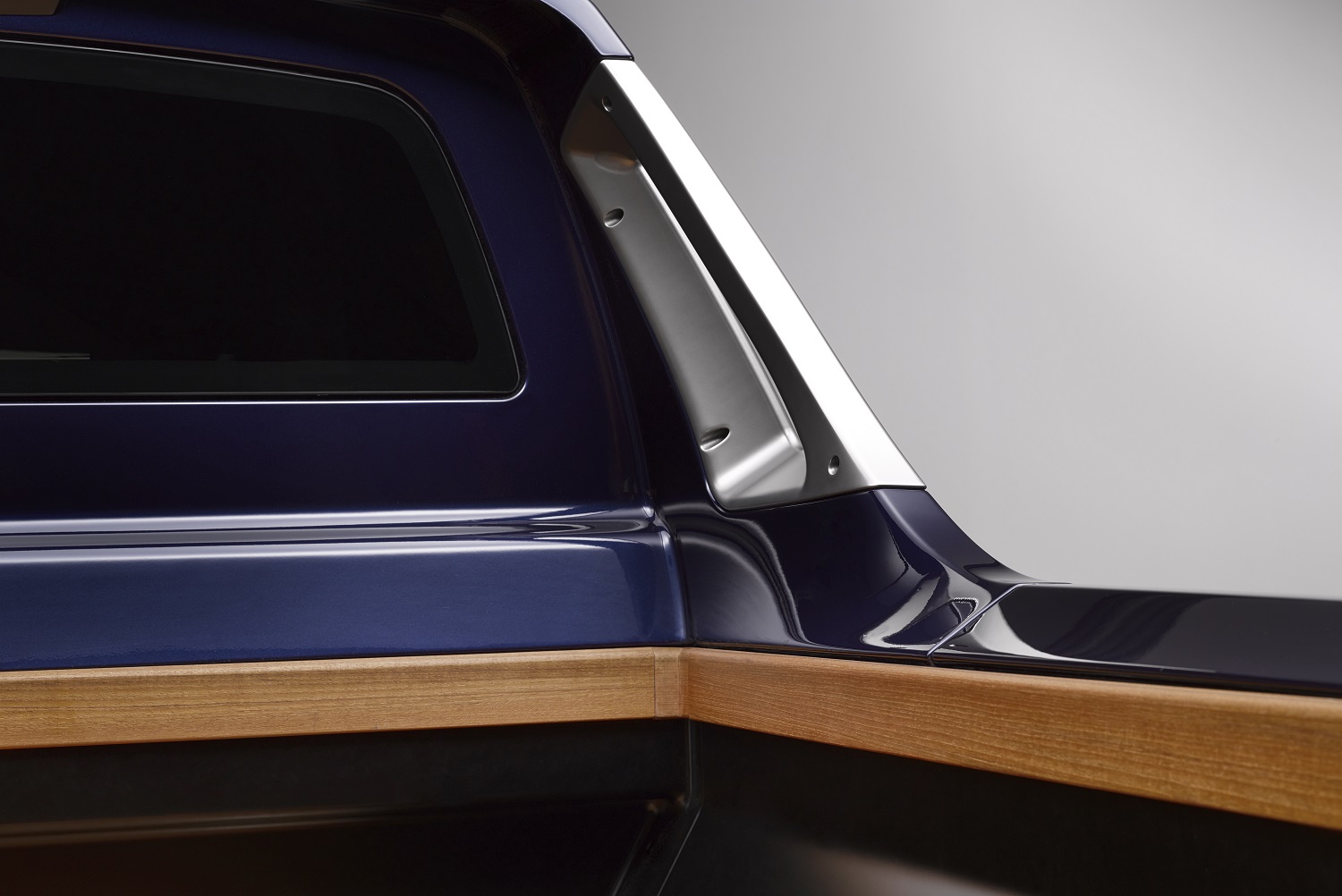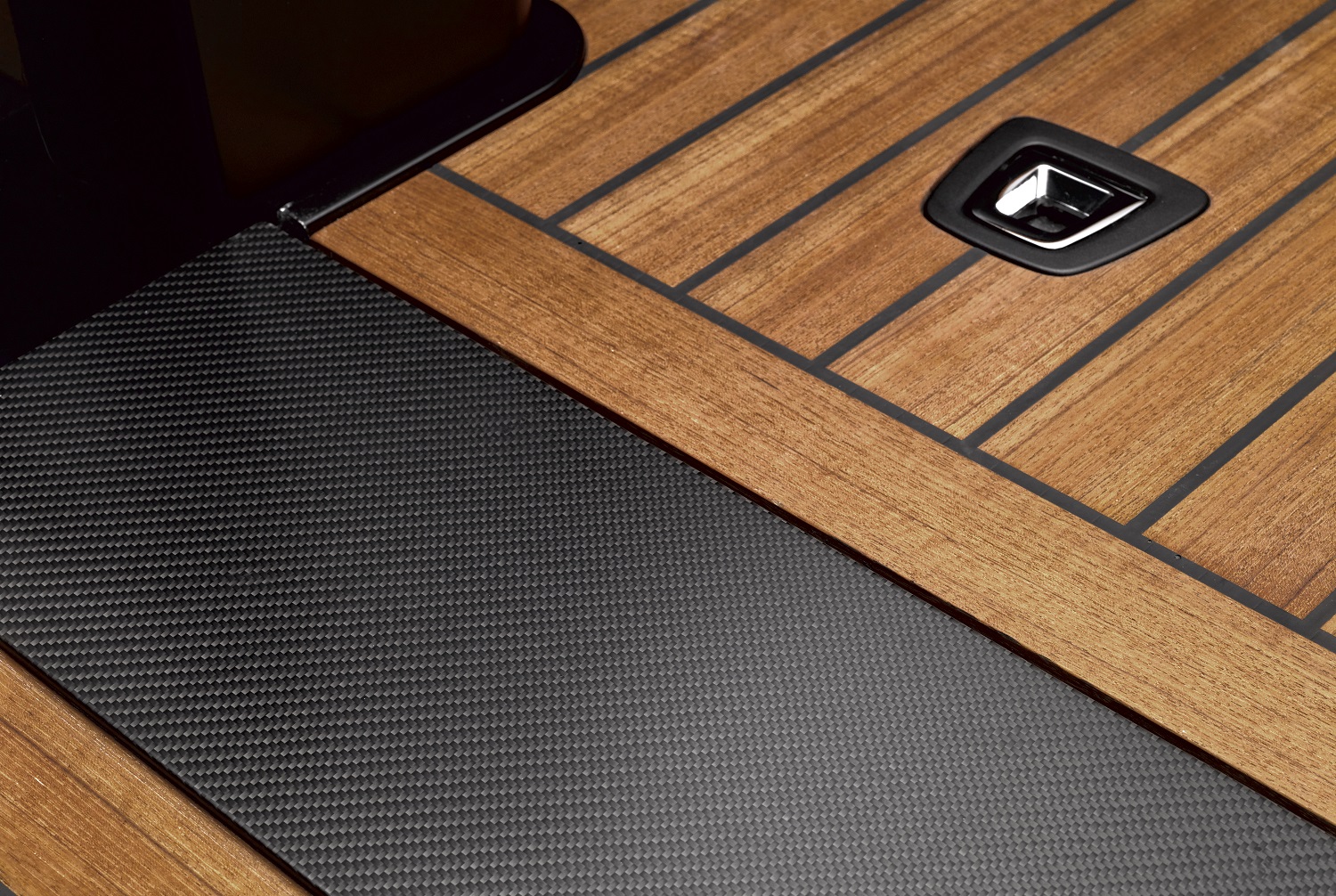BMW previously vowed never to follow arch rival Mercedes-Benz into the luxury pickup segment. It has seemingly changed its mind, because at special event held in July 2019, it unveiled a truck with a cargo box big enough to fit an F 850 GS motorcycle. The sound you just heard is every brand loyalist’s jaw hitting the floor.
The pickup started life as a regular-production X7, a model that stands out as BMW’s biggest and most expensive SUV. It looks a lot like the people-mover it’s based on from the tip of the front bumper to the edge of the front doors. Beyond that, it gains shorter rear doors, and — avert your eyes now, purists — a pickup box integrated into the body. The surprising part is that, if you ask us, it works. The box is neatly grafted onto the X7’s center section, and chrome-plated grab handles add an upmarket touch to the look.
The BMW-branded tailgate (we bet you never thought you’d read that phrase) folds down to reveal a wood-lined cargo compartment. The pickup is about four inches longer than the SUV it’s based on, yet it’s 440 pounds lighter thanks in part to the use of lightweight composite materials. The roof panel, the rear doors, and the tailgate are notably manufactured using carbon fiber.
The company hasn’t released photos of the truck’s interior, but it goes without saying that the optional third-row seat was sent back to the parts bin. Because the truck started life as an X7 xDrive40i, it’s powered by a turbocharged, 3.0-liter straight-six engine tuned to send 340 horsepower to the four wheels. It’s able to effortlessly carry the F 850 GS motorcycle that BMW tossed in the back. It keeps the X7’s unibody construction, meaning it’s not built on a separate frame like the Nissan-based X-Class, but it should be able to comfortably tow a small boat or a camper for a weekend away.
We say should, because there’s currently no indication the truck will end up in the company’s showrooms. BMW stressed the X7-based pickup is merely a one-off model built by trainees at the vocational training center it operates near its headquarters in Munich, Germany. “Series implementation is not planned. Special projects such as this serve during training to convey and deploy the required capabilities in practice,” the company wrote; it doesn’t get any clearer than that. And yet, the concept looks suspiciously ready for production.
